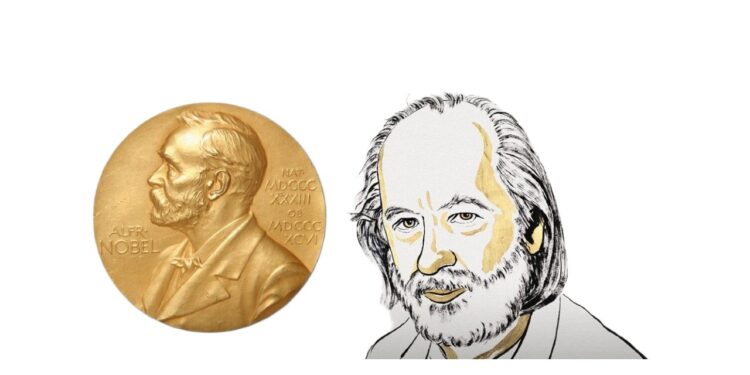Hungarian author László Krasznahorkai has been awarded the 2025 Nobel Prize in Literature for his visionary prose and unrelenting exploration of humanity’s fragility amid chaos, the Swedish Academy announced on Thursday.
A master of the apocalypse
Born in 1954 in Gyula, Hungary, Krasznahorkai is known for his long, hypnotic sentences and philosophical depth. His novels, including Satantango (1985) and The Melancholy of Resistance (1989), depict crumbling societies and individuals confronting despair with poetic intensity. The Academy described his body of work as “compelling and visionary,” praising how it “reaffirms the power of art even in the midst of apocalyptic terror.”
Critics have often placed Krasznahorkai in the lineage of Franz Kafka and Thomas Bernhard, noting his singular ability to combine dark humour with existential dread. His 2013 novel Seiobo There Below, which explores divinity and repetition across cultures, won the Man Booker International Prize two years later.
Between despair and transcendence
Krasznahorkai’s writing has long challenged conventional storytelling. His dense, stream-like narratives reflect disorientation and decay but are ultimately concerned with the persistence of meaning. While his fictional worlds verge on collapse, they continue to search for grace, often through art, ritual, or the faint hope of understanding.
This thematic tension—between ruin and revelation—defines his reputation as one of Europe’s most demanding yet rewarding authors. His work has been adapted by Hungarian filmmaker Béla Tarr, whose seven-hour film version of Satantango is regarded as a modern masterpiece.
A rare honour for Hungary
Krasznahorkai becomes the second Hungarian to receive the Nobel Prize in Literature, following Imre Kertész in 2002. The Academy’s decision is seen as recognition not only of an individual career but of a distinct Central European literary tradition marked by irony, endurance, and metaphysical questioning.
Hungarian officials congratulated the author, noting that his achievement brings global attention to the country’s cultural heritage. Despite his critical distance from Hungary’s political establishment, Krasznahorkai remains a central figure in its modern literary canon.
The enduring power of language
In an age dominated by brevity and distraction, the 2025 Nobel Prize in Literature acknowledges an author who resists simplification. Krasznahorkai’s prose, often described as “labyrinthine,” demands patience but rewards it with rare emotional and intellectual force. His recognition serves as a reminder that literature’s purpose is not comfort, but confrontation—with beauty, with terror, and with the limits of comprehension itself.
Newshub Editorial in Europe – 9 October 2025




Recent Comments